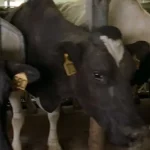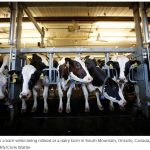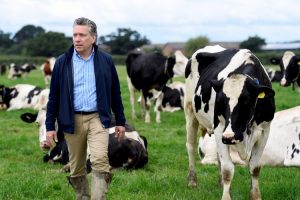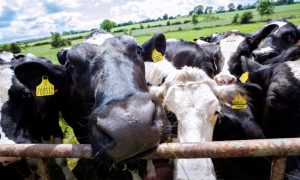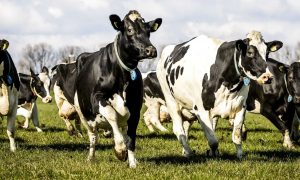
The UK is in the final stage of negotiations for accession to the Comprehensive and Progressive Agreement for Trans-Pacific Partnership (CPTPP), which is a multilateral deal between 11 countries around the Pacific Rim, including Canada, Australia, Chile, Malaysia and Vietnam.
Trade secretary Kemi Badenoch has reaffirmed the department’s commitment to CPTPP, despite Trade and Agriculture Commission chairman Lorand Bartels warning agricultural practices in existing member countries are “of more concern” than those in Australia.
Insiders say there is an intention to join by the end of this Parliament, with Britain’s top trade negotiator, Crawford Falconer, planning to return to his native country, New Zealand, once the job is done.
Mr Eustice said: “The key risks in CPTPP are that the government might concede access to the UK beef market as part of the deadweight cost of joining, with little or nothing in return, and that it agrees to dispute resolution provisions which undermine British sovereignty and allow litigious countries such as Canada to attack our food safety legislation.

© AdobeStock
“It is essential that British negotiators stand their ground on these matters.”
If the UK were forced by legal process to lift its ban on hormone-treated beef, it would open up the domestic market to the 40% of Australian beef produced in this way which does not currently have access.
Mr Eustice went on to warn of the dangers of wrapping the CPTPP negotiations up with separate talks on a bilateral deal with Canada, which is keen to protect its dairy sector.
He said: “There are good opportunities for UK dairy producers in the Canadian market and it is essential that the UK government secures tariff-free access for dairy as the corresponding price for any beef offer in the CPTPP and Canada agreements.”
A DIT spokesperson said: “We will not lower our food, animal welfare or environmental standards in order to accede to CPTPP and there is absolutely nothing in the agreement which would require us to lower these standards.
“The UK will ensure that that accession to CPTPP is on terms that work for the UK’s interests and priorities.”
